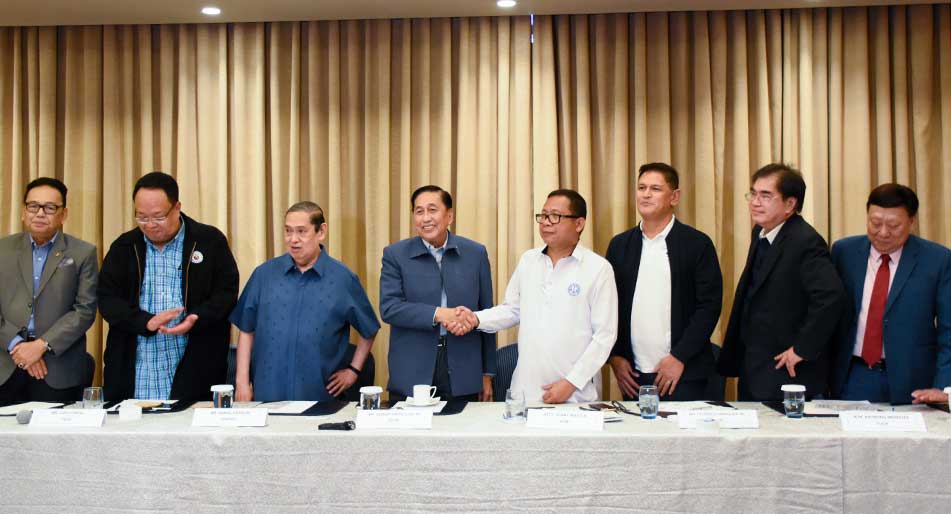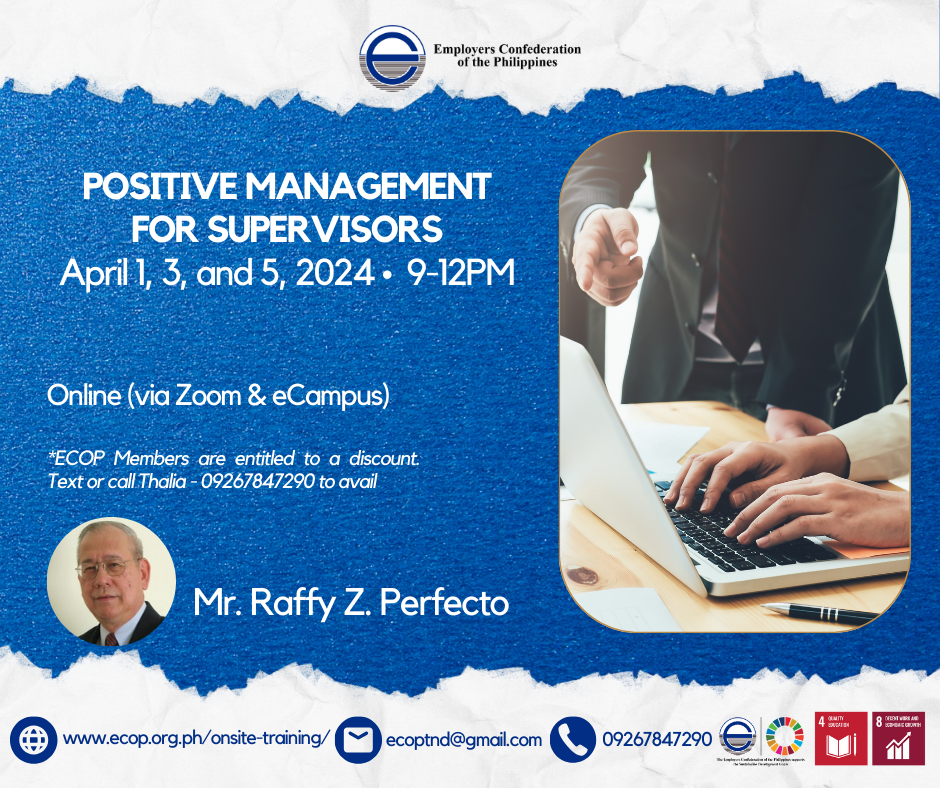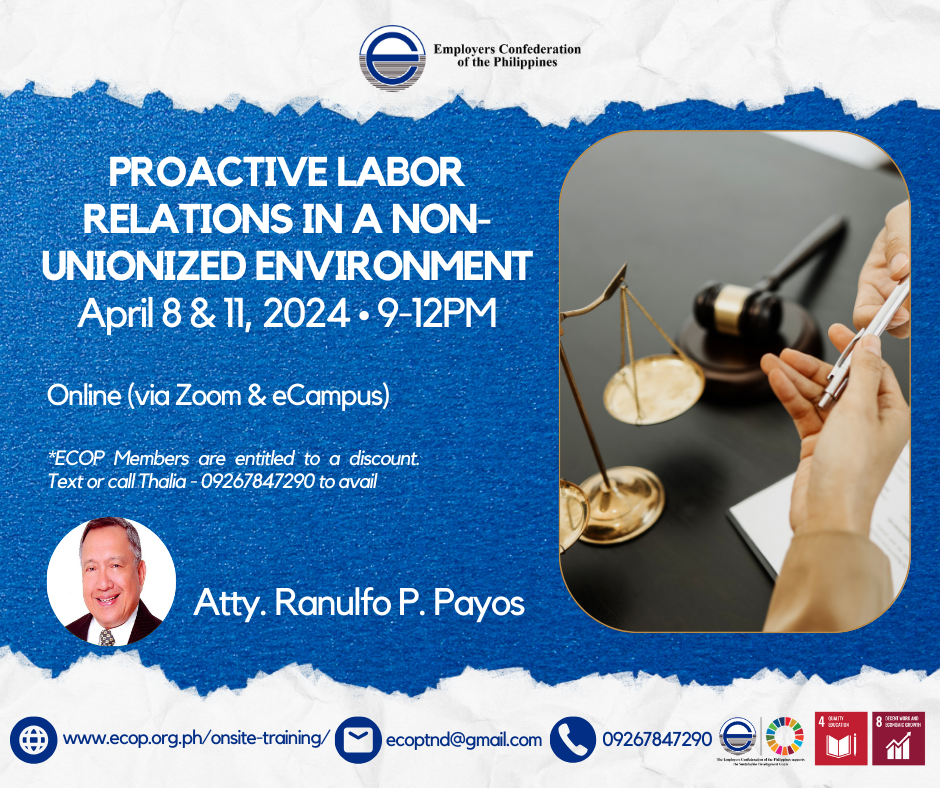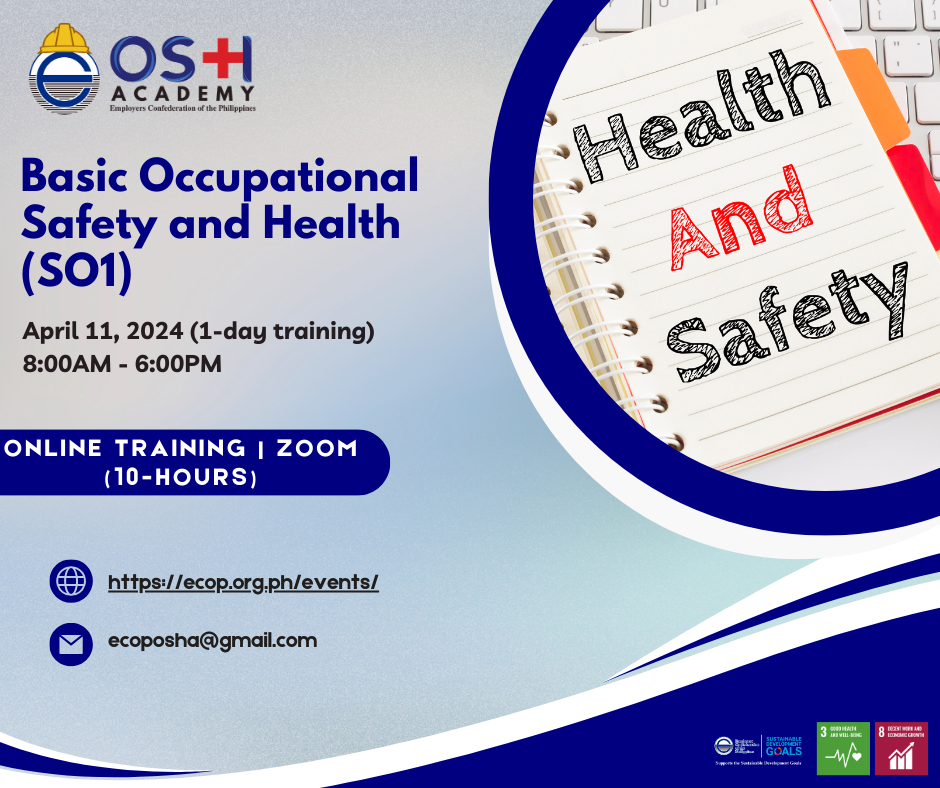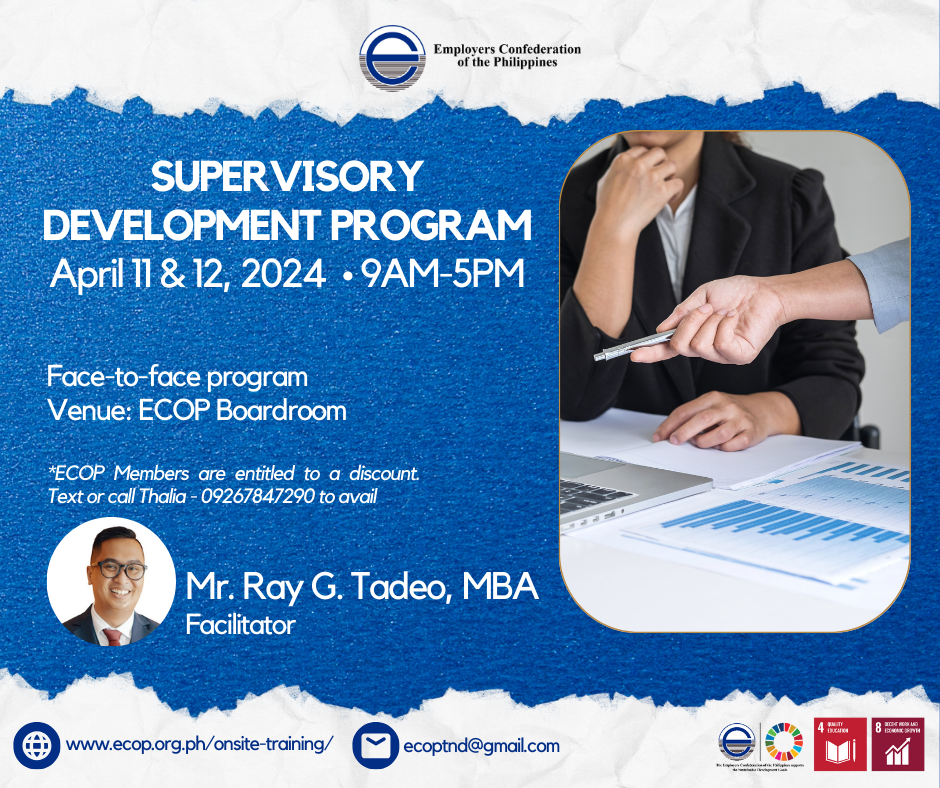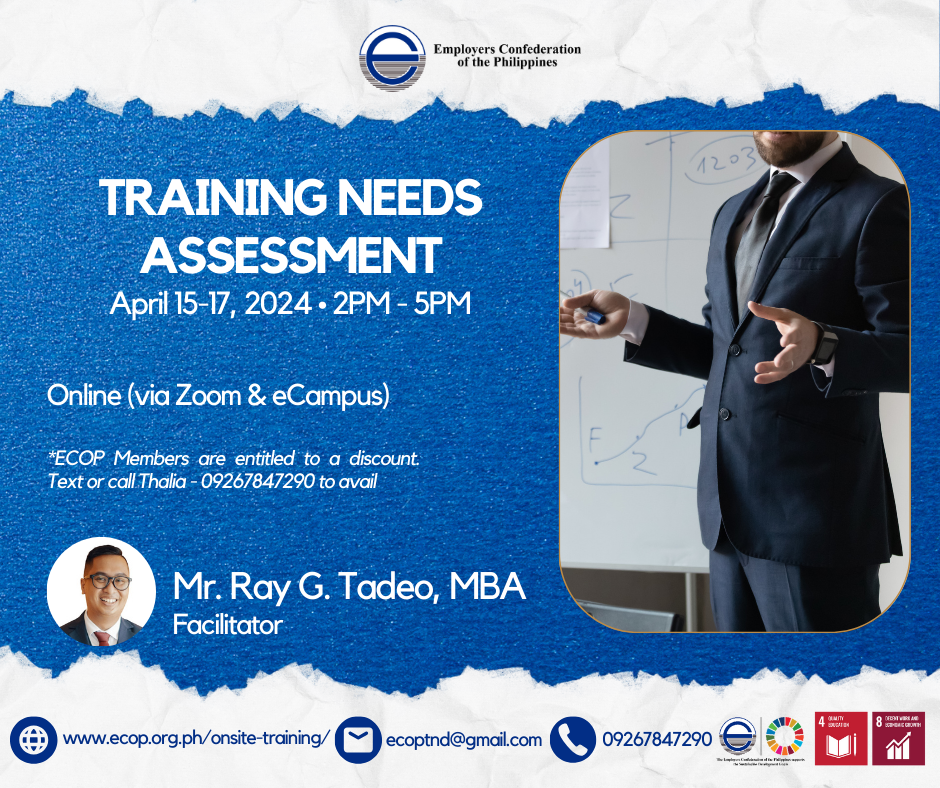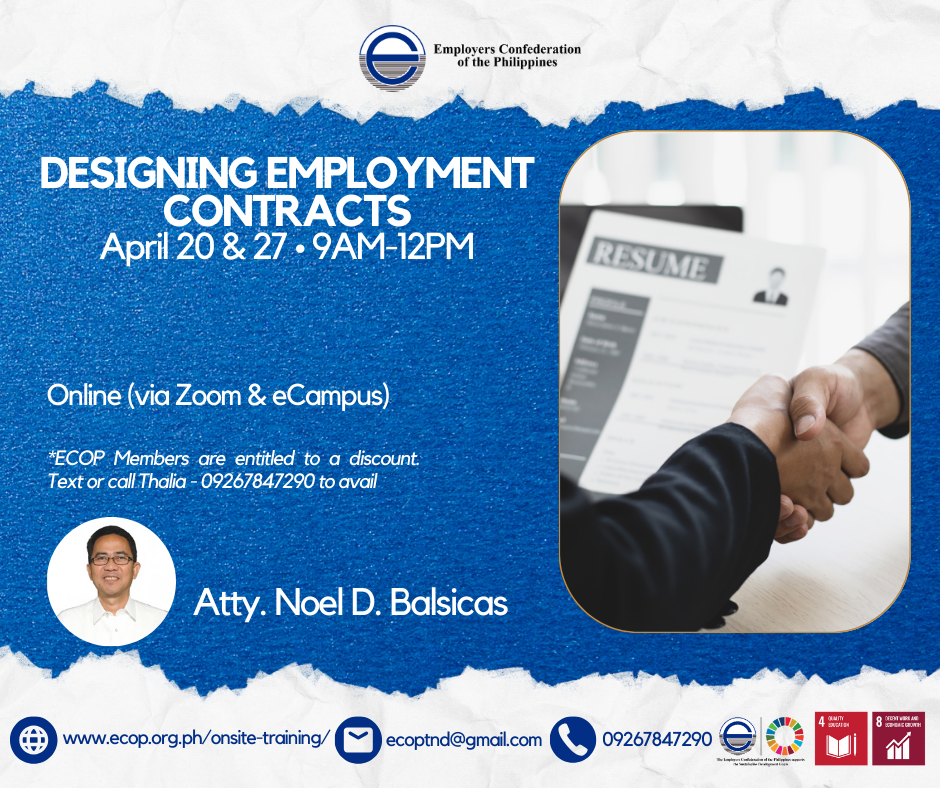On July 11, 2019, leaders of the country’s business and labor organizations convened for the 2nd Leaders’ Forum spearheaded by the Employers Confederation of the Philippines (ECOP). The agenda of the 2nd Leaders’ Forum is to find the common position of employers and workers on the gaps and issues on skills development. Following the 2nd Leaders’ Forum is a press conference where the leaders expressed their respective organization’s commitment.
Mr. Sergio Ortiz-Luis Jr., President of ECOP, said that ECOP remains steadfast in its vision to be the voice of the Philippine employers on labor and social policy towards the pursuit of national development and promotion of an adequate machinery for cooperation between workers and employers.
“Bipartism is a key component to successful tripartite social dialogue. It must be realized that it is the employers and their workers who understand the dynamics and realities in their respective enterprises, not any third-party spectator”, he said.
He clarified, however, that ECOP does not want to eliminate the government in the equation. “It must be understood that the main goal of this program that ECOP is implementing is to strengthen the bipartite relations between management and labor both at the national and enterprise levels. We will still be needing the support of our social partner in government in order for our social accords to be carried out and actualized”, he noted.
To end his speech, Mr. Ortiz-Luis, Jr. reiterated that “ECOP believes that this initiative will truly be beneficial to the economy as good bipartite relations lead to attraction of investment, generation of productive employment, and preservation of existing jobs. Through the promotion of good bipartite relations, workers and their employers can help each other in fostering a culture of responsible and ethical business conduct that will eventually translate into industrial peace and harmonious labor-management relations”.
Mr. Apolinar Aure, PHILEXPORT trustee for housewares sector, expressed PHILEXPORT’s commitment to work for the continuing development of the Philippines and the prosperity of the Filipino through exports while making sure that internationally proclaimed human and labor rights and environmental responsibility towards a sustainable socio-economic development is upheld.
“As a major player in the country’s economic development, PHILEXPORT is strategically well-poised to ride on this global call and help Filipino exporters step up their action in maintaining harmonious relationship among exporters alike, workers, and buyers”, he said.
Dr. Eduardo Ong, PCCI Education Committee Chairperson, reiterated PCCI’s belief that the project will highlight consensus building and partnership cornerstone in the drive for industrial harmony and inclusive economic growth. He emphasized that this meaningful partnership will help Philippine enterprises achieve global competitiveness which will further strengthen and contribute to the growth of the Philippine economy.
“As part of the chamber’s steadfast role as the champion of entrepreneurial resilience, sustainable economic development in our country, including inclusive growth for business, we pledge our full support in this worthy endeavor”, he said.
Meanwhile, leaders of prominent labor organizations in the Philippines also expressed their support to this initiative.
First to speak from the labor side was Atty. Sonny Matula, President of FFW, who welcomed the initiative on behalf of the labour groups. He noted that “initially, the discussion was on the draft social accord on skills development and how to address the job skills mismatch in the Philippines. However, leaders from both groups suggested substantial improvements to the draft social accord which focuses on the greening of our workplace and child labor concerns”. “We are going to work on it in the next few days to refine the draft and have it approved by the different groups from the employers and the workers”, he added.
Atty. Matula also noted that they “have a concrete proposal that we approved today which is a bilateral call on the President to address the lack of representations of workers and employers in tripartite bodies like in the SSS, Pag-Ibig, and ECC among others”.
Furthermore, he highlighted that “we have an agreement to bring to the President the concern of how to lower the power cost which is a very important component in the economy, to the workers, and employers”.
Hon. Raymond Democrito Mendoza, in behalf of TUCP and Nagkaisa Labor Coalition, expressed his gratitude to the Danish sponsors for this initiative considering that they have been doing this for the past one hundred (100) years.
“We have to work together in order to achieve what we clearly sought which is industrial peace. Sama-sama tayo dapat dito. And of course, we can start with simpler things like skills development and I hope that we can go through with it in the TWG and later on, in more substantive issues, probably with social partners and trade union leaders on the issue of the impending security of tenure bill”, he said.
He emphasized that “we should recognize our capacities and respect each other, and most importantly, work together and have a good relationship which is very important towards a success story. We need that to push our confidence in each other”.
Mr. Luis Corral also spoke in behalf of TUCP. He noted that “being here today doesn’t mean we have been converted and we are now Neo-liberals in the labor movement. We are not giving up our calls to end contractualization or are we abandoning our fight for better wages and working conditions but we do recognize that while we have our own deliverables, and that is to increase labor productivity, our employers, social partners, also have their deliverables”.
He also called on the government’s attention saying that “we are also asking government very soon, to meet some of its deliverables to the larger society, to the labor groups, and to businesses such as bringing down the price of power because it doesn’t make sense that we might have the highest power cost in ASEAN and occasionally in Asia. That makes us regionally uncompetitive in addressing our concerns about representation in sectoral and tripartite bodies where employers and labor are legitimately supposed to be represented because it is the workers and employers’ money invested in Pag-Ibig, Social Security System, and PhilHealth”.
“These are some of our concerns and we are looking not just at a social accord but maybe, to a larger concept, a form of social contract”, he said.
Mr. Daniel Edralin, Chairperson of Sentro ng Progresibo at Nagkakaisang Manggagawa, reiterated that SENTRO has always advocated for a collective bargaining at the enterprise level, industry level, and at the national level.
“In fact SENTRO itself is composed of about 18 industry and sectoral unions and this initiative to strengthen bipartite relations will strengthen SENTRO’s initiative to have a multi-employer bargaining and bargaining at the enterprise level because our respective constituencies can see our national organizations and their leaders coming together to try and have a joint actions to address common concerns”, he said.
In a hopeful tone, he said “maybe those at the enterprise and industry level will find it easier to work with each other so we really welcome this initiative and we are positive in the outlook that some good things will come out from this effort”.

